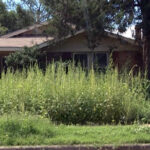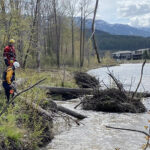Home »

New Sanitary Sewer Source Control Bylaw introduced
The City of Cranbrook last week took steps to updating sanitary sewer bylaws that date back 110 and 72 years.
City council Oct. 25 passed the first three readings of Sanitary Sewer Source Control Bylaw No. 4064, 2021, which when passed will regulate extensions, connections and use of the sanitary sewer system within the City of Cranbrook.
“As part of the city’s ongoing review of its policies and bylaws, staff have identified the requirement of an updated Sanitary Sewer Source Control Bylaw. The proposed Bylaw will repeal and replace the Plumbing and Sewerage Bylaw No. 99 (adopted in 1911) and the Plumbing and Sewerage Bylaw Amendment No. 1019 (adopted in 1949),” outlined Katelyn Pocha of Public Works in a bylaw report.
“This bylaw update is required in order to meet the BC Building Code, the Environmental Management Act, and additional sanitary sewer technical requirements. The purpose of this bylaw is to focus on identifying and controlling substances at the source, prior to discharge to the city’s sanitary sewer system.
The reported noted “many benefits to managing substances at the source prior to discharge,” including:
- protection of the public, workers and sanitary sewer infrastructure from exposure to hazardous substances and conditions;
- protecting the quality of wastewater biosolids to ensure their beneficial use as a soil amendment at the spray irrigation facility;
- ensuring the city maintains compliance with provincial operating permits for the wastewater treatment system; and
- reducing infrastructure maintenance costs by managing grease, sand, soil and other solids that cause blockages in the sanitary sewer system.
“The proposed Sanitary Sewer Source Control Bylaw underwent a legal review with the city’s solicitors and staff conducted extensive research with other municipalities and city departments regarding the changes proposed. Restricted waste limits were reviewed by an engineering firm to ensure the limits are acceptable for restricted waste entering the wastewater lagoons,” the city report stated.
e-KNOW







